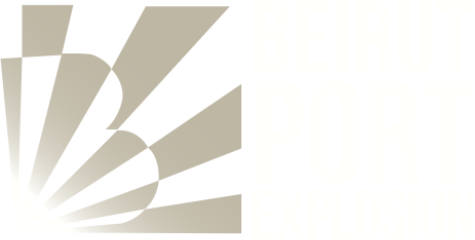Introduction
It was eight minutes past 6:00 p.m. on the 4th of August when a devastating explosion pulverized the port of Beirut. The deadly blast destroyed a significant part of the northeastern side of the city, leaving 215 victims dead, wounding 2,750 others, and displacing 300,000. It was later revealed that up to 2,755 tons of improperly stored ammonium nitrate - commonly used to manufacture explosives - for six years in Hangar 12, caused the explosion. However, what ignited the combustible chemical compound, remains unknown.
.
Joseph Skaf From His Grave: I Warned You!
The Rhosus ship docked in Beirut under the pretext of loading equipment for a company carrying out work for the Ministry of Energy
On 21 November 2013, the Rhosus ship sailed into the port of Beirut carrying 2,755 tons of ammonium nitrate. Making its way from Georgia to Mozambique, the ship docked at the port of Beirut to load seismic surveys equipment that belongs to Spectrum Company, which was conducting work based on its contracts with the Ministry of Energy. The company brought its equipment to Lebanon per its deal with the aforementioned ministry.
.
Do you think negligence, corruption, clientelism, and incompetency contributed to the 4th of August explosion?
Agree
In Between
Disagree
Click on the ship icon to browse documents in chronological order


April 2, 2014 Ministry of Public Works and Transport Ship Inspection and Report April 14, 2014 Letter from the Directorate General of Land and Maritime Transport to the Case Authority Check all documents related to this stop... April 7, 2014 Letter from Baroudi and Associates Law Firm to Head of Beirut Port



























Documents according to their connection with each figure
Judicial seizures accumulated on the ship after it was prevented from sailing on the pretext that it was unseaworthy
While loading the equipment on top of the ship, the ship's hatches buckled under the cargo’s weight, prompting the captain to halt the process. A team of the general directorate of the Ministry of Public Works and Transport examined the ship and found that it’s unseaworthy, preventing it from sailing before restoration. Later, the Beirut execution department took judicial seizures due to unpaid debts by the tenants and the owners of the ship.
Warnings about the dangers of the ammonium nitrate were voiced after three months
In light of the judicial seizures, the ship docked at the Beirut seaport for more than three months during which the sailors were prevented from leaving. Afterward, a decisive change occurred and became a turning point for the ship and cargo situation when in late February 2014 customs officer Colonel Joseph Skaf wrote a letter to the customs administration warning of the dangers posed by the ammonium nitrate, stressing that it is highly dangerous, explosive, and threatens public safety. He proposed removing the ship away from the docks towards the breakwater, and putting it under the supervision of the Lebanese security services.

Warnings about the dangers of the cargo came after Skaf's letter
All relevant customs officials received Skaf’s letter and the ship was moved to the breakwater. The harbormaster sent a letter to the general directorate of transport warning of the dangers of the cargo, and so on, many warning letters were sent in this regard. The lawyer of Rhosus also sent an elaborated report over the danger of the ammonium nitrate on board, citing examples of countries where similar shipments exploded due to poor storage conditions resulting in human and financial casualties.

The Customs decided to dismiss the violation of not listing the ammonium nitrates on the ship's Unified List
Following Skaf’s warning letter, the head of the Manifest Department at the time, Badri Daher, opened an investigation after it was revealed that the ship's maritime agent didn’t identify the type of cargo on the Unified List when it arrived at the port, which means that the security agencies were unaware of the cargo on board. In conclusion, the Customs decided to overlook the violation in the pretext that customs law and its circulars don’t require identifying the cargo on the Unified List unless it is unauthorized or monopolized, while ammonium nitrate is considered restricted material that needs special authorization from relevant ministries or council of ministers to enter Lebanese territory depending on its nitrogen grade. However, when the ship entered the port of Beirut, loaded with ammonium nitrate, the violation was overlooked, and Badri Daher decided not to fine the ship with 400.000 LBP.
.


